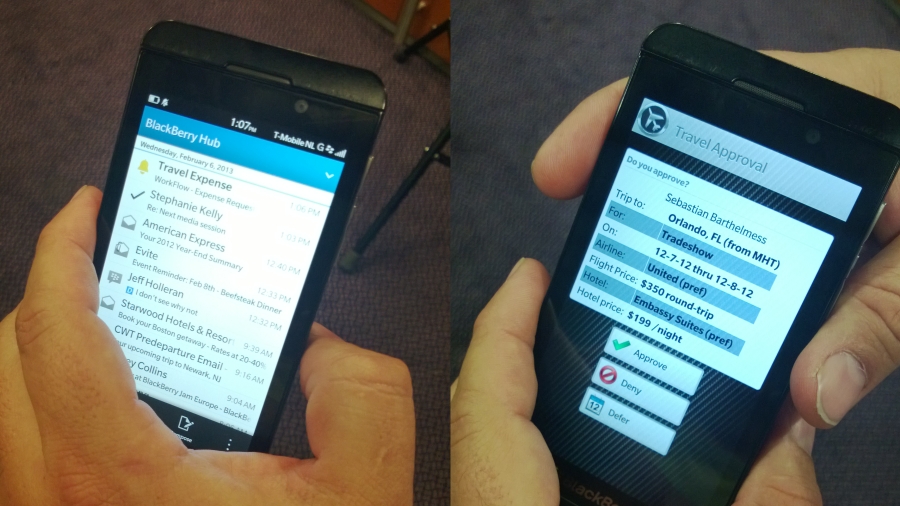Mobilising the public sector
Squeezing government savings through IT

UK Chancellor George Osbourne recently announced a series of measures as part of the UK Government's Spending Review with an aim of stimulating growth in the economy. Mr Osborne needs to find a further £11.5bn in savings from government departments in 2015/16 in order to achieve previously set targets.
That means big cuts to the budgets of many government departments already feeling the squeeze from the 2010 review. Though the budgets of several public sector departments (like schools, the NHS and overseas aid) have been ring-fenced, other departments will have to bear a heavier burden, with average budget cuts of 8%.
There are of course concerns that this will have a detrimental impact on frontline services provided by government departments. However, making cuts is not necessarily the only way to reduce costs, without placing a heavier burden on the public sector.
Adding up
According to the Government's Digital Strategy (Nov 2012), an hour currently spent interacting with Government costs the citizen £14.70.
In fact, if just half an hour were saved by digitising every transaction currently completed offline; the total savings to the economy would be in excess of £1.8 billion. This isn't out of the question either; over 56% of UK adults now own a mobile phone that is web enabled and there is a growing demand for services to be available digitally.
HP recently commissioned a study by iGov to look at the adoption of services provided by services designed to work on mobile devices within the public sector. In total, 261 unique organisations completed the survey which represented a broad cross section of public authorities from Local Government (43%), Central Government (18%), NHS (27%) and Universities (12%).
Big changes
The survey found that contrary to a lot of recent reports in the media, the public sector is increasingly coming to terms with the large-scale societal changes taking place as a result of mobile technology.
Sign up to the TechRadar Pro newsletter to get all the top news, opinion, features and guidance your business needs to succeed!
The research found that 73% of those surveyed said that they use mobile technology to deliver services to employees and the public. Furthermore, 30% of respondents said that they, or their departments, intend to offer up to 49% of their services via mobile technology in the next 18 months.
Mobile is indeed already being used for a number of beneficial purposes, helping to reduce costs across the board. 60% of respondents reported that they were already using it to enable staff to work flexibly and more productively, through working remotely (30%) or as a day to day tool for staff in the field (26%).
A third of respondents also indicated that bringing mobility to the workplace meant that staff time had also been freed up in order to deliver frontline services.
Mobility should certainly then be embraced by the public sector as it helps to drive efficiency and the delivery of services to the public. However whilst great strides have been taken in this regard over the past few years, there is of course more that can be done in order to reduce the toll of newly introduced budget cuts.
Security concerns
The same survey also showed that security concerns are currently the main inhibitor (23%) of uptake of mobile services, whilst only 14% currently see mobile technology's main function as an aid to deliver public services online. That being said, these departments also need to step up engagement with the public in order to assess the user experience after implementing mobile delivery of public services.
It is important, if efficiency and the financial goals that Mr Osborne is aiming for are to be achieved, that the public sector changes the way it sees and uses mobile technology. Fortunately Government appreciates and understands the need to move to mobile whilst making sure that existing services are portable to mobile.
As Tom Loosemore wrote back in March 2013, "People should be able to use digital services wherever they are, on the device of their choosing … We're confident that for government services, the mobile web is a winner, both from a user and a cost perspective". Only by fully embracing this trend can the UK public sector really move forward in sync with the public itself.
- Alastair Corbett leads HP's UK&I Software Business Unit and has responsibility for its strategy, the promotion and selling of the IT Performance Suite and related services.
Prior to this role, Alastair was responsible for defining the new sales strategy and go-to Market models for Worldwide Software Sales, and before that, he successfully led the Worldwide Services Operations team for HP Software.
Alastair joined HP from Peregrine as a result of the acquisition in 2005, where he held the role of VP International Operations and was responsible for all Finance and Operations activities in EMEA and APJ. He also led the integration activity for EMEA, as well as leading the Sales Operations function.